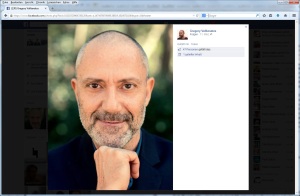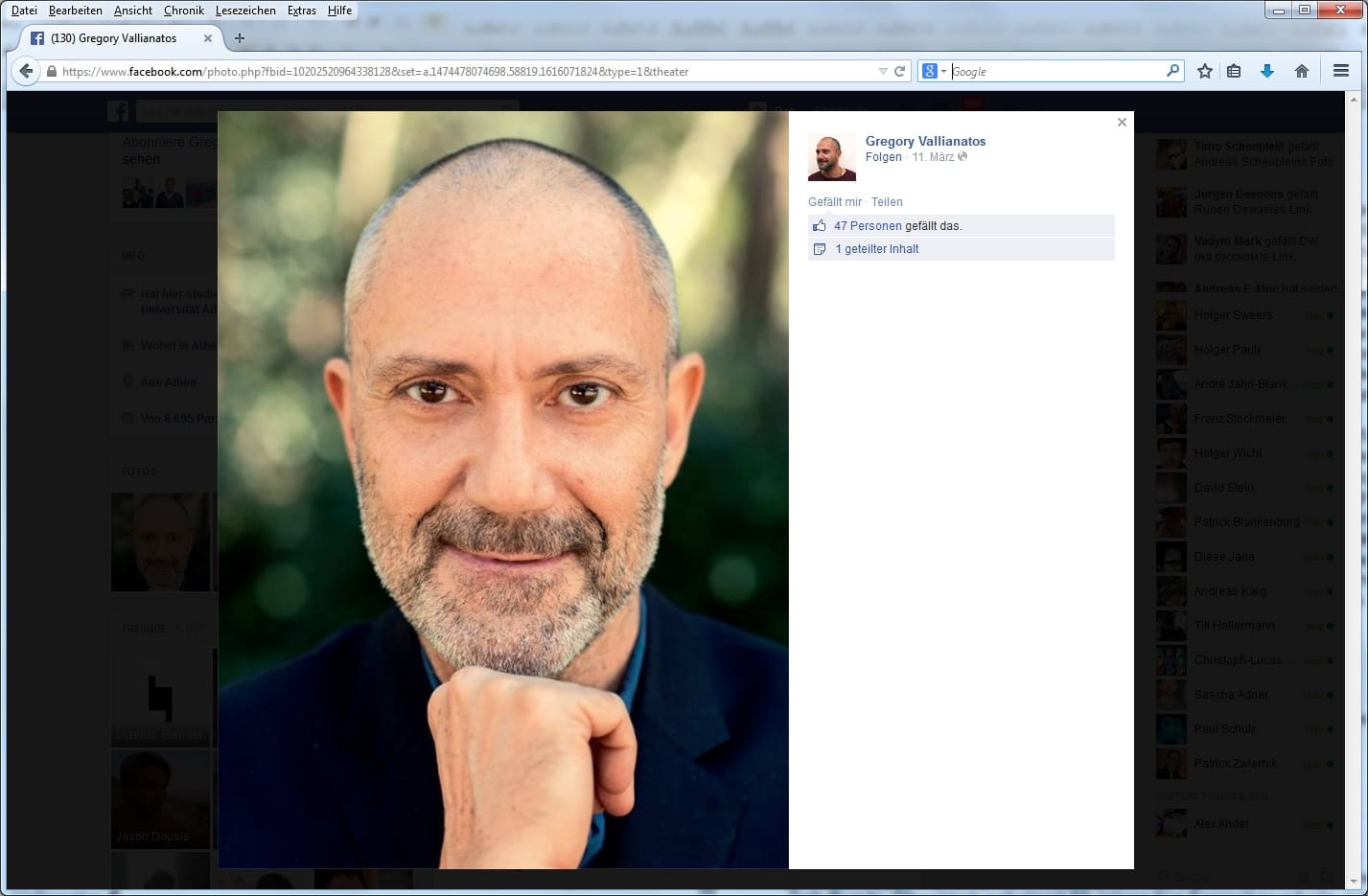Gregoris Vallianatos is an activist and TV journalist and was most recently a candidate for mayor of Athens. He is also gay and HIV-positive. The portrait of a jack-of-all-trades*

Prominent TV journalist Gregoris Vallianatos is always good for a scandal. As a liberal candidate for the Athens mayoral elections, he publicised on Facebook in the middle of the election campaign that he is HIV-positive. As a result, Vallianatos was once again the centre of attention - and the topic of HIV was on everyone's lips. "There are perhaps one or two people in Greece who are openly positive," says the 58-year-old "long-time survivor": he diagnosed himself as positive back in the 1980s. The symptoms were clear - and as a gay activist from the very beginning, he knew his way around. He has been taking medication since 2002 and is well adjusted.
For those who can read between the lines, the HIV coming-out was not necessarily a surprise. He had already hinted at it in a talk show in 2002. Gregoris Vallianatos was also involved in the founding of a total of five different HIV initiatives. However, he also behaved strategically for a long time: "As an activist, you have to be careful in Greece. Being gay and positive is something of a double burden. So until now, I've played down being positive and emphasised being gay."
The crisis was followed by the brown danger
He has been working as a gay activist since the late 1970s. Currently, the shift to the right in Greek politics is causing him a major headache - above all the "Golden Dawn", which won 6.92% of the vote in the Greek parliamentary elections in June 2012 and entered parliament with 18 seats. The following sentences can be found on the website of the far-right party: "Homosexuality is a state of social degeneration. Natural selection, sterilisation and euthanasia are the means of choice, in combination with responsible medical treatment and bioethics."
The emergence of the brown danger has to do with the country's political and financial crisis. "Given the chaos left behind by previous governments in Greece, it is easy for the far right to pick up phrases from ancient Sparta and the Greek Orthodox Church and sell them to the desperate who are simply fed up," he analyses.
The dicey political situation is awakening the fighting spirit of the community here and there: "In addition to Pride in Athens, there are now two more: one in Thessaloniki and one in Crete," says Vallianatos. The focus is always on HIV policy.
Thousands became homeless.
Despite the economic crisis, the financial and health situation of positive people in Greece is not necessarily the worst. In addition to medical care, the state has been granting those affected a pension of around 700 euros for over 20 years. "However, the relevant authorities are now making it more difficult to get the money," says Gregoris Vallianatos. "Today, you only get the money if you are already taking medication."
The number of HIV infections has risen significantly during the crisis. A large proportion of the new infections are among the homeless. In Athens alone, around 20,000 have ended up on the streets as a result of the crisis. Those who have no money and come into contact with drugs often no longer have the strength to look for a fresh syringe and either share an injection needle or help themselves from the pavement.
Stigma HIV, stigma gay
Even for positive people who are not homeless, conditions are anything but rosy. The infection remains a stigma. "The Greek Court of Appeal has even declared dismissal on the grounds of HIV infection to be lawful," says Vallianatos (for which it was reprimanded by the European Court of Human Rights; editor's note).
On another front, the pugnacious activist has scored another legal success: Together with his long-term partner Nikolaos Mylonas, he brought an action against the Greek state before the European Court of Human Rights in Strasbourg - and won: Together with other plaintiffs, he succeeded in ensuring that "registered partnerships" in Greece are also open to same-sex couples. However, it remains to be seen whether and when this judgement will become law.
It has long been known that he supplemented his pocket money with escort services during his student days. That was in London in the early 80s. "It was a great experience," says Gregoris Vallianatos. "I decided for myself who I went with. As an escort, you're not a sex slave."
Behind every state expression is the church
Vallianatos gave the Greek public its last surprise for the time being at the beginning of May when he withdrew his candidature for the office of mayor. "In 70 days, I have not been approached by a single TV station, neither for an interview nor for a talk show. Even though I have been working in television for 30 years and have had my own talk show for 20 years. As an activist, I cannot accept this kind of discrimination and censorship."
He sees his withdrawal as a clear protest against the media boycott. "Obviously you can be openly homosexual in Greece - but not in mainstream politics. That says a lot about tolerance in our country." He points out that the preamble to the constitution begins with the words "In the name of the Holy, Equal and Indivisible Trinity": "Racism and homophobia are constitutional in Greece because the Church is behind every expression of the state."
* This text first appeared in issue no. 11 for summer 2014 of M+ (www.m-maenner.de/plus), available to read free of charge at pocketmags.com. We would like to thank the author and publisher for their permission to republish.










